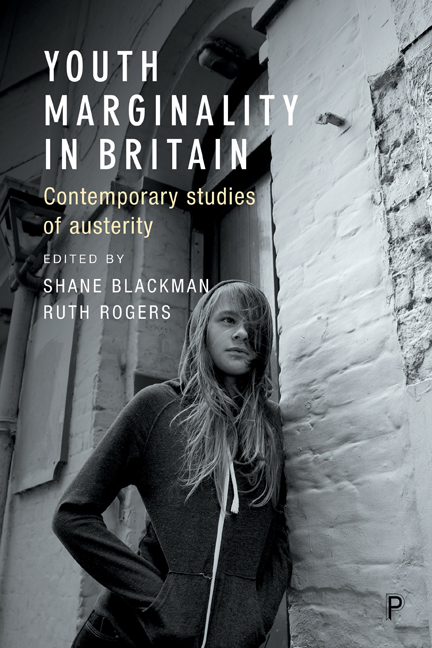fifteen - ‘Binge’ drinking devils and moral marginality: young people's calculated hedonism in the Canterbury night-time economy
Published online by Cambridge University Press: 05 April 2022
Summary
Introduction
Young people have long been associated with being ‘folk devils’ (Cohen, 2002), who are morally marginalised by the moral indignation and controversy related to media portrayals of recreational substance use (Young, 1971). This chapter examines the media framing of the contemporary alcohol consumption practice known as ‘binge’ drinking, and how negative media representations of young people and this practice have produced moral indignation and marginality in the UK (Cohen, 2002). It argues that media terms such as ‘binge’ drinking create negative connotations, which act to marginalise young people in the UK today, and that prioritising the experiences of young people and alcohol consumption can lead to a reframing of the term to: ‘calculated hedonism’ (Griffin et al, 2008). The argument is associated with young people being granted more agency and control within their alcohol consumption ‘management’ than suggested in mainstream media representations and government policy documents. This features a prioritisation on expressing the life experiences of participants involved in the night-time economy by featuring examples of young people drinking.
The chapter builds upon the reframing of the term ‘binge’, by reflecting this as a problematic term as outlined by the definitions associated with the practice. It also reflects on the argument that ‘empirical research suggests that young people intentionally manage their levels of desired and actual intoxication by using strategies that incorporate aspects of perceived risk’ (Measham, 2006, p261). This is a central feature of contemporary academic discourses around young people's alcohol consumption.
‘Folk devils’ and discourses of youth: media misrepresentations of young people and moral panics
Media discourse regarding substance use among young people in particular has long been highlighted as being both a marginalising and a myopic view. Stanley Cohen describes the negative impact of misleading media representations on public perceptions in Folk devils and moral panics:
the media have long operated as agents of moral indignation in their own right: even if they are not self-consciously engaged in muck-raking, their very reporting of certain ‘facts’ can be sufficient to generate concern, anxiety, indignation or panic. (Cohen, 2002, p7)
While Cohen's view of a strategic media amplification of certain ‘facts’ was originally associated with his study into the youth subculture of mods and rockers in the 1960s, this view is also explicitly linked to the contemporary media representations of UK ‘binge’ drinking.
- Type
- Chapter
- Information
- Youth Marginality in BritainContemporary Studies of Austerity, pp. 239 - 252Publisher: Bristol University PressPrint publication year: 2017



